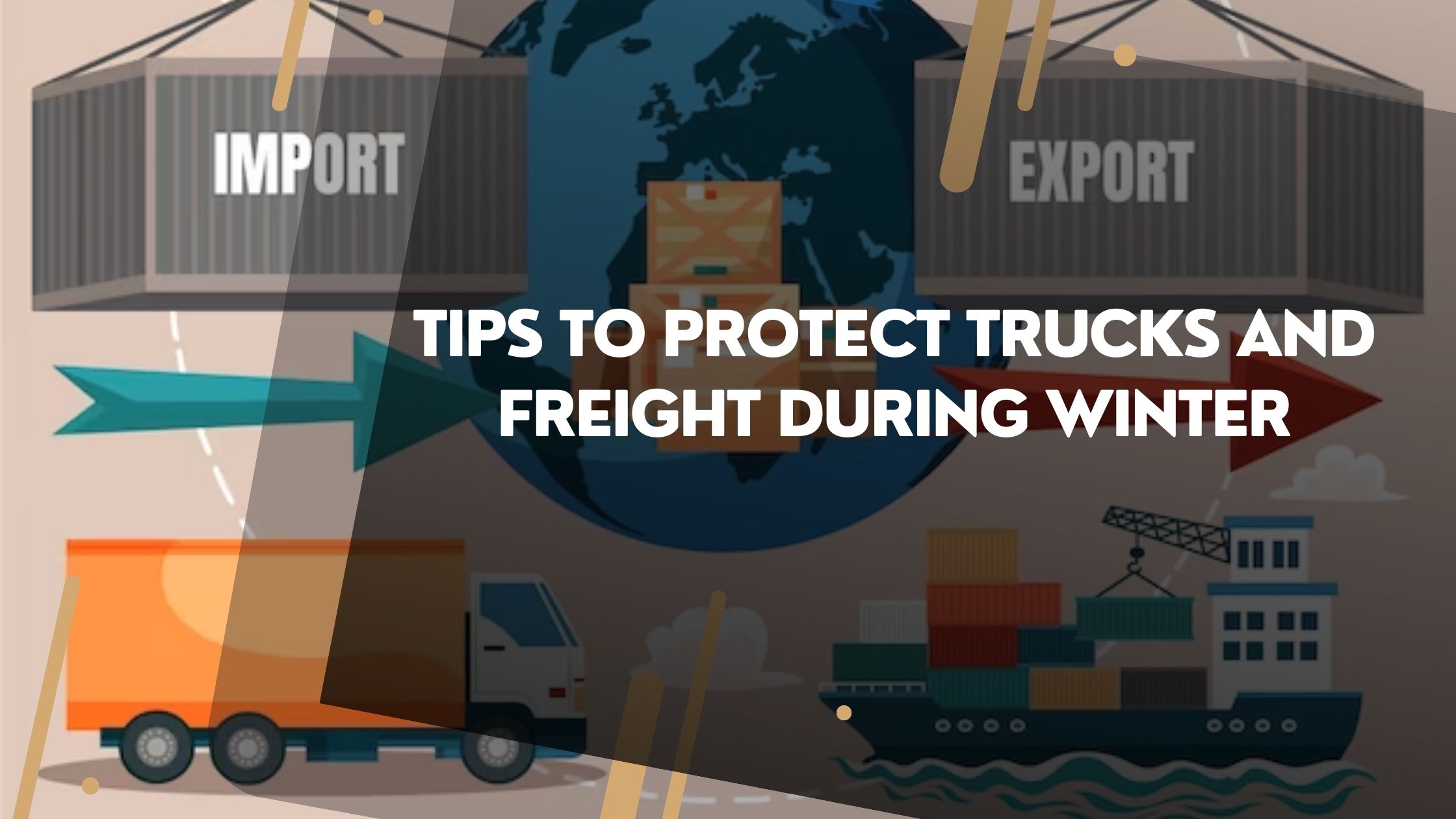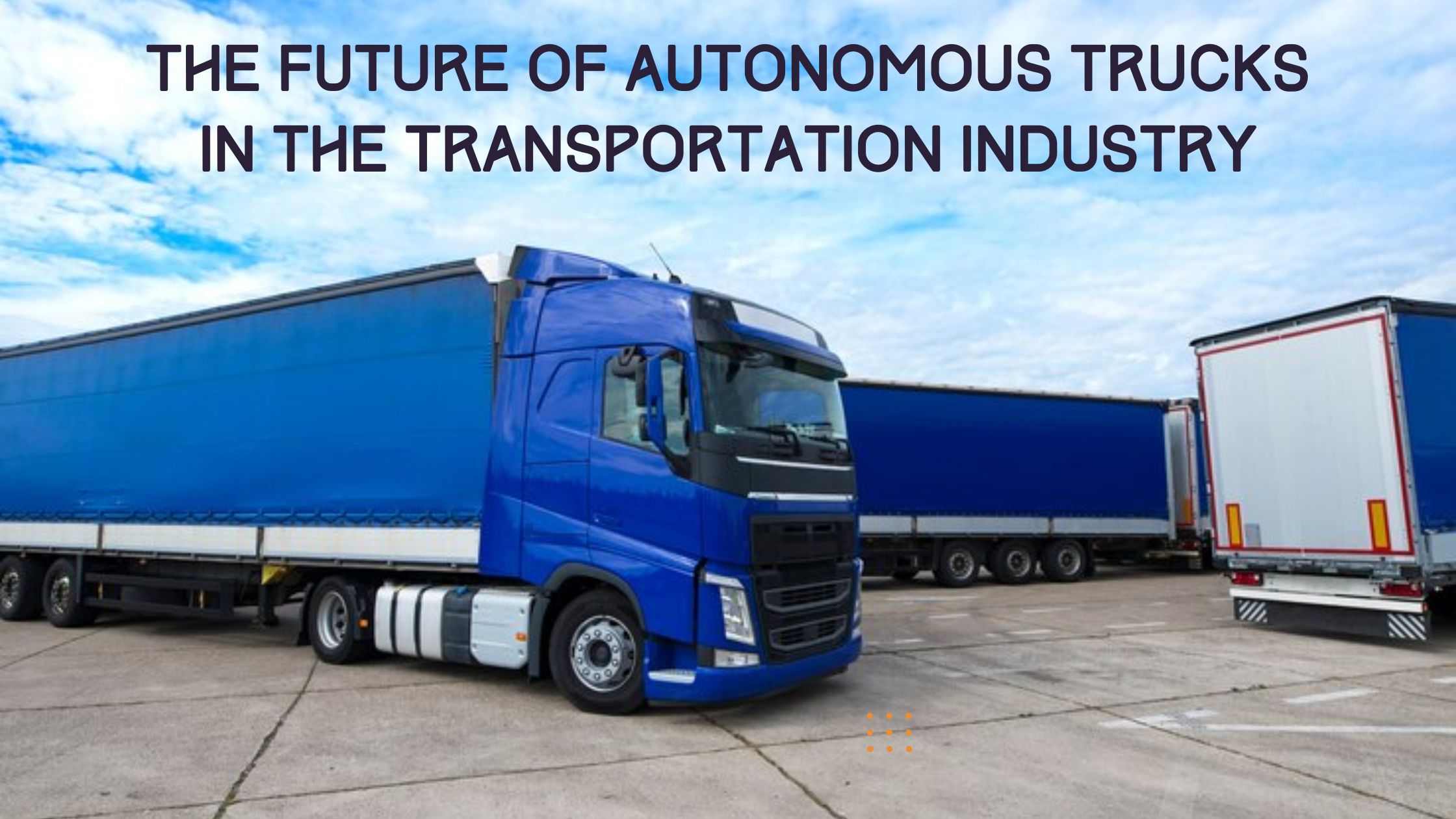Winter can be hard, especially for freight and trucks that have to drive on ice roads and deal with inclement weather. Making sure your fleet is safe and operating efficiently becomes more important as the weather gets colder. We at Roadies Inc. are aware of the difficulties that winter brings for transportation businesses. This thorough book will provide priceless advice on how to safeguard your freight and vehicles in the winter with Freight shipping services, resulting in a safe and easy ride on winter roads.
Advice for Keeping Trucks and Freight Safe in the Winter
Pre-Winter Maintenance: The Foundation of Resilience
Before the first snowflake falls, invest time in thorough pre-winter maintenance. Check the engine, brakes, tires, and all fluid levels. Ensure that the heating system functions optimally and all components are in excellent condition. This proactive approach lays the foundation for a resilient and reliable fleet during winter.
Inspect and Upgrade Tires: Grip Matters
Since tires are your truck’s link to the road, winter readiness revolves around them. Regularly check the treads on your tires, and replace them if necessary. To improve traction on slick areas, think about getting snow tires. Tires that are properly inflated and maintained lower the chance of accidents and provide smoother travels in inclement weather.
Stock up on Cold-Weather Fluids: An Essential in Below-Freezing Conditions
Antifreeze and winter-grade oil are examples of cold-weather fluids that are essential to keeping engines running in subfreezing temperatures. Make sure all of the fluids in your truck are rated for the coldest weather by routinely checking and replenishing them. During the winter, you may avoid engine damage and failures by taking this easy yet essential precaution.
Battery Health: A Powerhouse Against the Cold
Cold weather can be harsh on truck batteries, reducing efficiency and potential failures. Check the battery’s health and replace any ageing batteries before winter sets in. Keep a close eye on battery terminals, ensuring they are clean and corrosion-free. Consider investing in engine block heaters to facilitate easier starts in the cold.
Weather-Appropriate Lubrication: Keep the Wheels Turning
Your vehicles need to be properly lubricated in order to run smoothly, particularly during the winter. Make sure that cold-resistant oil is used to properly lubricate all moving components. Particular care should be given to parts like fifth-wheel mechanisms, locks, and hinges. Frequent lubrication enhances the overall function of the vehicle and keeps the components from freezing.
Emergency Kits: Be Ready for Any Situation
Road closures and unexpected storms are only two of the problems that winter weather may bring. Make sure every truck has an emergency kit that is fully loaded with necessities like warm blankets, additional clothes, non-perishable food, and a trustworthy flashlight. Add a first aid kit and some tools for little repairs as well. It is essential for drivers’ safety and wellbeing to be ready for unanticipated events.
Driver Training: The First Line of Defense
Empower your drivers with comprehensive winter driving training. Ensure they are well-versed in handling adverse weather conditions, including snow, ice, and reduced visibility. Guide safe braking distances, navigate slippery roads, and understand the truck’s limitations in winter conditions. Well-trained drivers are your first line of defence against winter-related incidents.
Monitor Weather Conditions: Stay Informed, Stay Safe
Since winter weather may be erratic, real-time monitoring is crucial for route planning and avoiding potentially dangerous situations. Invest in dependable weather monitoring devices and applications that offer the most recent data on temperature fluctuations, snowfall, and road conditions. To guarantee the protection of the freight and the safety of your drivers, be informed and make wise judgments.
Examine lights and signals on a regular basis to illuminate the path ahead
Wintertime brings fewer sunlight hours, so it is imperative for protection that each one of your vehicles’ lights and signals work. To test the turn alerts, brake lights, danger lights, and headlights on a ordinary basis, go with freight shipping Bakersfield. To enhance visibility on the street and make your vans effortlessly recognizable to other drivers, update any damaged bulbs properly.
Collaborate with Drivers: Communication is Key
Encourage open communication between fleet managers and drivers. Establish a system for drivers to report any issues promptly and provide them with a direct line of contact in emergencies. A collaborative approach ensures that potential problems are addressed swiftly, reducing downtime and enhancing the overall efficiency of your winter operations.
Driver Training and Preparedness:
-
Conducting Winter Driving Training
Ensure drivers undergo comprehensive winter driving training. This includes techniques for navigating icy roads, understanding braking distances, and responding to winter emergencies.
-
Equipping Drivers with Emergency Kits
Provide drivers with winter emergency kits, including essentials such as blankets, warm clothing, non-perishable food, water, and tools for minor repairs.
-
Stressing the Importance of Regular Breaks
Encourage drivers to take regular breaks to combat fatigue, especially during long journeys in challenging winter conditions.
Emergency Response Planning:
-
Developing a Winter Emergency Response Plan
Create a comprehensive winter emergency response plan that outlines procedures for breakdowns, accidents, and extreme weather conditions. Ensure all staff members are familiar with the program.
-
Ensuring Drivers Have Access to Emergency Services
Provide drivers with information about emergency services along their routes. This includes contacts for roadside assistance, towing services, and nearby medical facilities.
-
Establishing Protocols for Breakdowns and Accidents
Clearly define protocols for handling breakdowns and accidents during winter. This includes contacting emergency services, documenting incidents, and coordinating recovery efforts.
Conclusion: Navigating Winter Roads with Confidence
Winter brings challenges, but with proactive measures and a commitment to safety, your trucks and freight can confidently navigate the coldest months. At Roadies Inc., a Bakersfield trucking company we prioritize your fleet’s well-being and your operations’ success. Implementing these tips will protect your trucks and freight and contribute to a resilient and efficient winter trucking season.
Stay prepared, stay safe, and may your winter journeys be smooth and secure. For more insights and assistance optimizing your winter operations, connect with us at Roadies Inc.












